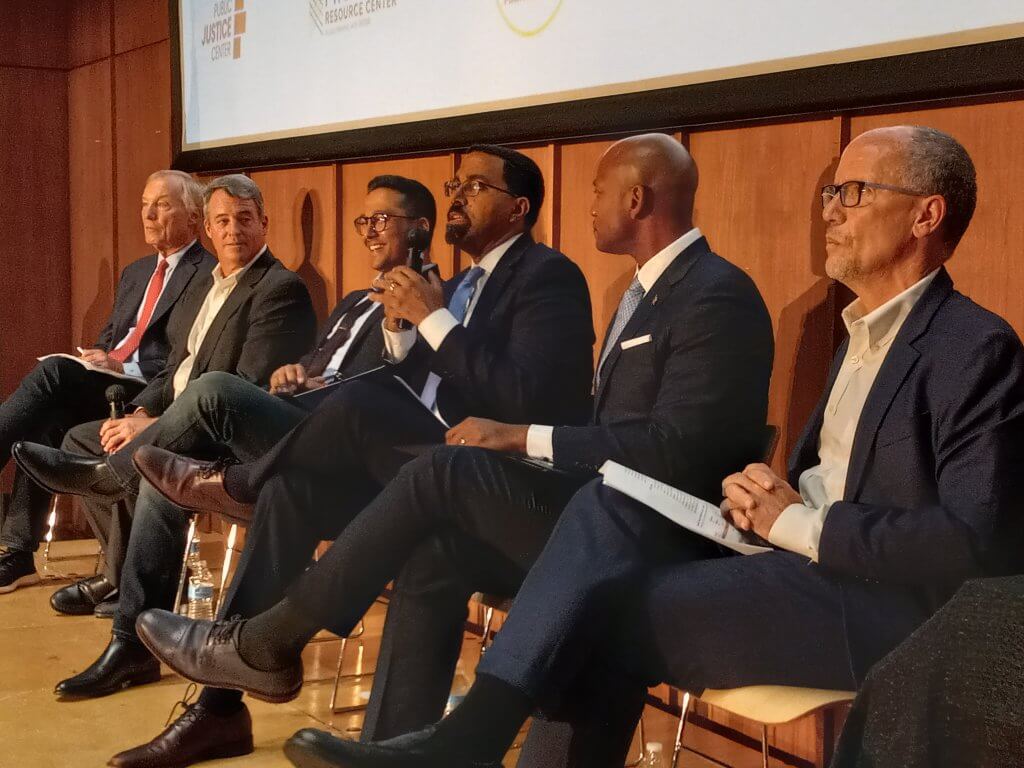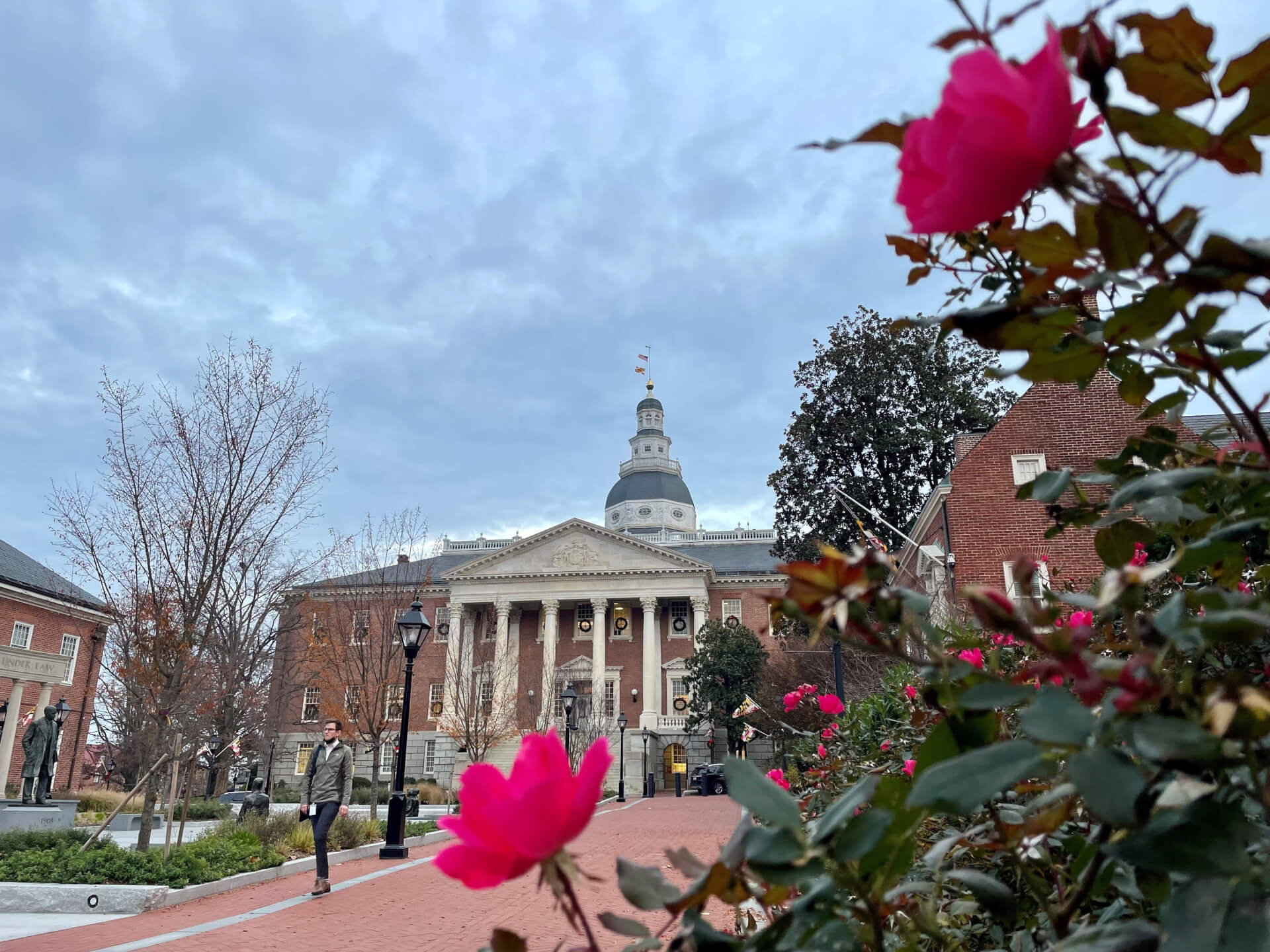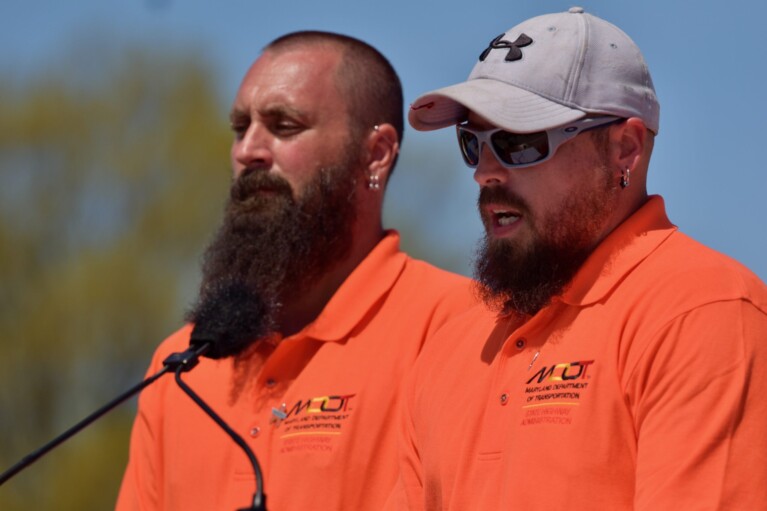
By Candace Bacchus Hollingsworth
The writer is the former mayor of Hyattsville and the national co-chair of Our Black Party, a political organization established to help elect candidates and advance policies that support the Black agenda.
Black voters in Maryland have an opportunity to elect the first Black governor in the state’s history.
Although embarrassingly uncommon, this opportunity isn’t new of late; this makes the third in the last eight years. The field includes three Black men vying for the top spot: Rushern Baker, John King, and Wes Moore.
Not only do we have more Black candidates than ever before, the concerns of Black Americans — and Black Marylanders by extension — have never occupied the public discourse since Jim Crow more than they do today. White candidates know they must
express an understanding of “Black issues” to win not just the support of Black voters, but also the affection of White liberals.
It would be naïve of us to believe that the attention paid to our concerns is borne solely of deep understanding and true commitment. There is a political calculus that demonstrates you must talk a good game to win the primary and have a record of palatability to give voters the confidence that you can win a general election. If the past year has taught us anything, it’s shown us that candidates will use “Black” — the word and the people — when it’s convenient.
Over the coming months we will hear more from candidates, particularly non-Black candidates Baron, Franchot, Gansler, Jain, Perez, and Rosenbaum, about their commitments to diversity, equity, and inclusion and perhaps some may be daring enough to call their platform a “Black agenda.” Not only that, but some candidates also use their years, and in some cases decades, of public service as proof that they can “get the job done.”
I find this amusing. I have the most distrust for candidates who have the longest tenure in office, yet the shortest record on strengthening and supporting Black communities.
Black candidates, on the other hand, can choose one of two routes. They can be unapologetic in their commitment to Black folks, meaning they will never choose to compromise on our existence, our prosperity, or our survival, or they can leave room for us to assume that they understand and will get it right because they are Black.
I know firsthand that these are not false choices. The challenge is that only one choice will present a path for true accountability for voters. While non-Black candidates may receive applause and support in nearly every corner in the state for waking up to the realities of structural racism, to be a Black candidate means running the risk of alienating white voters everywhere and losing the confidence of Black voters that you can win. The path to victory is truly paved by White folks with good intentions.
I want a candidate with the guts to tell the truth.
Tell the truth about how we arrived where we are, nationally and in Maryland. Tell the truth about your own history and complicity with reinforcing systemic racism. Tell the truth about the times you may have, knowingly or unknowingly, forced your Black friends to hide parts of themselves to make you more comfortable.
Tell the truth about how the boards and leadership of the businesses and organizations you founded or have run have very few, if any, Black people on them. I want you to tell the truth that you feel that, if you’re white, you must pick a Black running mate (or if you’re non-white, a white one), because that’s what the formula dictates.
Tell the truth that you’ve advised your staff or your candidates to steer clear of Black Lives Matter if you felt it would cost you an election or to embrace it when you felt it would mean you or your candidate would win. Tell the truth that the Black people on your team are surrogates, employed for their networks and not for their expertise.
How can you promise to usher in change, if you’re not willing to view your past actions with clear eyes and own it?
Whatever they are, your truths are not nearly as offensive as the slow transition to political
Blackface. Black voters know the realities of this world and want candidates who see themselves as part and parcel of this unfair place, flawed in ways that make them a part of this story not apart from it.
Don’t get me wrong: Maryland needs a governor who is committed to fulfilling the promise of a Black agenda and that commitment can indeed come from unlikely places. What must be
understood, though, is that although the Black agenda is necessarily progressive (small “p”), it cannot be confused with a white Progressive agenda. Liberal communities can be anti-Black, particularly when it comes to harnessing Black political power.
The paternalism of white progressives writ large is pernicious and can undermine Black self-determination because in Maryland, a Black agenda survives only to the degree that white Progressives accept it.
The gubernatorial candidates must be willing to parse the nuance of a Black agenda within a progressive agenda to achieve a government that is responsive to the needs of Black Marylanders without being anti-Black. An agenda for Black Marylanders ensures that Black people’s voices are elevated and prioritized in the development of their communities. This agenda would ensure equitable participation of Black growers, farmers, workers, educators, thinkers, leaders, and entrepreneurs in every segment of our society.
The Black agenda includes all Black people: the differently-abled, the atheist and agnostic, the queer, the native born and the immigrant, the young and old, those with and without children, the renters and the homeowners, those degreed and those with limited literacy, the wealthy, and the poor.
The Maryland Black agenda should go deep and rise high; it must extend to every city through local leadership and to the Capitol through our congressional delegations. A Black agenda must be intentional; it cannot rely on income, homeownership, or carceral status as a proxy for race.
Black voters should not have to compromise a win for our communities for a Democratic win.
My hope is that Black Marylanders can trust the power of our voice and our vote. We deserve
much more than pandering, jazz bands, and free food. We deserve a gubernatorial candidate
who is bold enough to speak their truth, learn in public, and allow us to bear witness. We need a candidate who knows their limits and demonstrates that they are committed to bringing others in who are far more experienced — through lived experience, not just formal education — in the areas they do not yet understand.
We need a candidate whose values are clear and authentic.
We need someone who believes so deeply in our power that they are afraid to tell us no.
Candidates have been invited to share their vision and, it is to be hoped, their truths at an upcoming forum, An Agenda for Black Marylanders, on Dec. 2.
.
If you have questions you would like to have answered, please share them with us at
[email protected].




 Creative Commons Attribution
Creative Commons Attribution